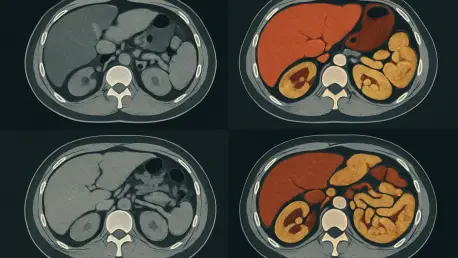
The meticulous and often grim process of postmortem examination, a cornerstone of forensic science for centuries, is undergoing a profound transformation driven by the integration of advanced medical imaging technology. For generations, the scalpel has been the primary tool for uncovering the

The global battle against cardiometabolic diseases, a complex group of conditions including heart attacks, strokes, and diabetes, has entered a transformative new phase, driven by the unprecedented capabilities of generative artificial intelligence. As these diseases continue to pose a significant

A high-stakes legislative confrontation over the Department of Homeland Security's budget is pushing the federal government to the brink of a partial shutdown, with the nation's healthcare system caught in the crossfire as critical Medicare services hang in the balance. The standoff, rooted in a

A new frontier in the fight against cancer is emerging from an unexpected source: the trillions of microorganisms residing within the human gut. For years, the medical community has grappled with a persistent challenge in oncology—the fact that powerful immunotherapy treatments, designed to unleash

An intelligent model that leverages federated learning is poised to dramatically reshape the assessment of medical imaging for Alzheimer’s disease, offering a sophisticated new approach to one of modern medicine’s most daunting challenges. This groundbreaking research confronts the critical hurdles

Today we're joined by Ivan Kairatov, a biopharma expert with a deep understanding of technology and innovation in healthcare. We'll be exploring a groundbreaking study that uses artificial intelligence to analyze routine abdominal CT scans, uncovering a surprising new way to predict a person's risk